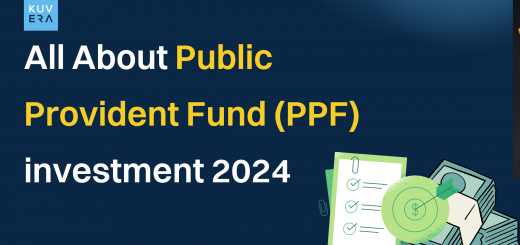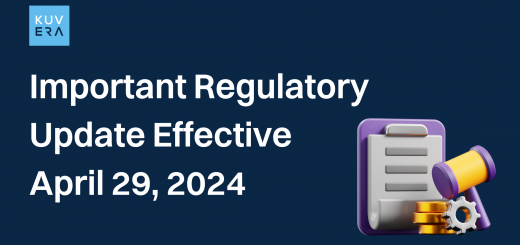What are Fixed Income Securities?
Fixed-income instruments or fixed income securities are debt instruments that generate returns in the form of fixed or regular interest payments. Additionally, the principal amount is repaid at the maturity date. Therefore, at the time of investment, investors will be aware of the corpus value they will receive upon maturity.
On the market, fixed income instruments represent a liability for the issuer. Additionally, the interest payments of a fixed income instrument depend on the issuer’s trustworthiness. Therefore, this type of security is popular among investors who wish to avoid taking risks. Additionally, these investors seek consistent returns on their assets.
In this group, fixed deposits, government bonds, and fixed maturity plans are the most prevalent instruments. India also offers the National Savings Certificate, the Public Provident Fund, and the Senior Citizen Savings Scheme as fixed income tools.
What Are The Types of Fixed Income Securities?
- Bonds
It is one of the most prevalent types of fixed income instruments issued by companies to finance day-to-day operations and enable a more efficient production run. Since fixed-income bonds are a liability for the issuing company, they must be redeemed as soon as sufficient money is generated.
- Government Bond
India’s Central and State governments issue government bonds to finance their operations and control the money supply. On behalf of the government, the RBI issues bonds, which it then sells to the public by soliciting investments. The government will refund principal and interest on the maturity date. Additionally, the offered interest rate may be set or variable. These bonds have maturities ranging from 5 to 40 years. In addition, the government offers many types of bonds from which investors can choose based on their specific requirements. Therefore, government bonds are suited for investors with a low-risk tolerance, as they value investment security.
- Bank Fixed Deposits
In India, fixed deposits are among the most popular investment options. Financial institutions, including banks, offer this product. A fixed deposit provides a fixed rate of interest on the principal investment for a predetermined length of time. Typically, the duration of an FD spans from seven days to ten years. In addition, the rate of interest is fixed at the moment of deposit and does not fluctuate during the deposit’s term. However, the interest rate can vary based on the bank or non-bank financial institution. It also relies on the quantity of the deposit and the duration of the deposit. In addition, a fixed deposit gives a higher rate of interest than a standard savings account. Under Section 80C, a 5-year tax-saving FD is eligible for a tax deduction of up to INR 1.5 lakhs.
- Fixed Maturity Plans
Fixed Maturity Plans (FMPs) are closed-end debt funds with lock-in periods between 30 days and 5 years. FMPs invest their assets primarily in fixed-income securities, such as certificates of deposit, commercial papers, Treasury bills, etc. Consequently, the scheme’s purpose is to minimize interest rate volatility on the debt market. In addition, it tries to give investors with stable returns over a predetermined period. FMPs are only available for investment during the New Fund Offer (NFO) period, and investors can only redeem their investments at maturity.
- National Saving Certificates
The National Savings Certificate (NSC) is an Indian government-sponsored post office savings scheme. This scheme aims to encourage small and middle-income investors to save. In addition, the NSC certificate earns a predetermined rate of interest during its term. The lowest investment in this scheme is 100 INR, and there is no maximum investment amount. In addition, the scheme has a 5-year lock-in period that cannot be extended. In addition, under Section 80C of the Income Tax Act of 1961, investments in NSCs are eligible for a tax deduction of up to INR 1.5 lakhs. NSC investments are restricted to Indian residents only. Non-Resident Indians (NRIs) are unable to establish a new NSC.
- Debt Mutual Funds
These funds invest the corpus in a variety of fixed-income securities, including corporate and government bonds, commercial papers, money market instruments, corporate bonds, etc. The primary benefit of debt Mutual Funds is that they offer a better rate of return than conventional savings schemes such as fixed deposits and savings accounts held at banks and other financial institutions.
- Money Market Instruments
Certain money market instruments, such as treasury bills, certificates of deposit, commercial papers, etc., are offered as investment opportunities at a fixed interest rate and are therefore classified as fixed income securities. They are issued for a brief duration, with a maturity period that often does not exceed one year. In India, however, these fixed-income bonds are traded over the counter and are therefore inaccessible to individual investors. It is only available via money market mutual funds.
- Seniors Citizens Savings Scheme (SCSS)
The Government of India’s Senior Citizens Savings Scheme (SCSS) is a post office savings scheme. Since the Ministry of Finance supports SCSS, the Indian government supports SCSS. This strategy is an example of a low-risk investment. The GOV routinely examines the interest rate. In addition, this scheme has a five-year commitment period, which can be extended by an additional three years. Therefore, this program is suited for senior citizens (at least 60 years old) who seek to generate a steady income with minimal risk and reduce their tax liability. A contribution to the program qualifies for a tax deduction under Section 80C of the Income Tax Act of 1961. However, interest income is subject to taxation under the heading “Income From Other Sources” at the investor’s tax slab. In addition, you can easily open a SCSS account at any authorized commercial or public sector bank.
- National Pension Scheme (NPS)
National Pension Scheme (NPS) is an investment plan with a long-term horizon. It was initiated by the government of India under the Pension Fund Regulatory and Development Authority (PFRDA). It is open to public, private, and unorganized sector personnel. As part of the scheme, investors are required to contribute to a pension account throughout their employment. After retirement, employees may withdraw a portion of the corpus. And the leftover amount will be provided as a monthly pension to the employee. In addition, investments in the NPS qualify for tax benefits of up to Rs 1.5 lakh under section 80C and Rs 50,000 under section 80CCD.
- PSU Bonds
These funds are one of the most popular types of fixed-income instruments since they are offered by the nation’s top-performing public sector entities.
- PMVVY
The Pradhan Mantri Vaya Vandana Yojana (PMVVY) is a government-funded program for senior citizens in India. This plan provides a stable and regular income with the option to pick monthly, quarterly, semiannual, or annual payouts. Additionally, it gives a predetermined rate of return, which the government examines at the start of each year. The duration of this program is ten years. However, it allows subscribers to exit the plan at any time, providing them with significant liquidity. Consequently, this yojana is best suited for senior citizens who desire a regular, guaranteed return in addition to insurance advantages.
Features
The key Features of fixed income instruments are as follows:
- Fixed-income securities generate consistent or fixed returns via interest payments.
- These instruments carry a lower level of risk as compared to equity related instruments. Consequently, they are suitable for those with a low risk tolerance.
- Due to the rate of interest and payment structure, which investors are aware of in advance, the predictability of returns makes fixed income products safer than stocks.
- They provide higher rates of interest than savings accounts.
- Under Section 80C of the Income Tax Act of 1961, instruments such as PPF, 5-year Fixed Deposits, and Post Office Deposits are exempt from taxation.
- Fixed income instruments are taxed similarly to debt funds. Short-term capital gains are taxed at your income tax slab. With indexation benefits, long-term capital gains are taxable at a rate of 20%.
Fixed Income Risks
- Interest Rate Risks
Fixed-income instruments are very susceptible to interest rate fluctuations. When interest rates increase, bond prices decrease. When interest rates fall, prices increase. These price variations have an effect on the investment’s value. Price volatility in the bond market is typically caused by changes in interest rates, with the risk being greater for longer-term bonds.
- Inflation Risks
Bonds provide a steady income stream, but inflation can erode the purchasing value of the income.
- Credit Risk
Credit risk is the likelihood that a company will default, in which case the bondholder may lose all or a portion of their capital. Fixed-income instruments are susceptible to credit risk, although credit ratings from bond rating organizations such as Moody’s Corporation or Fitch Ratings provide a reliable estimate of an issuer’s risk. In addition to yield, highly rated securities are beneficial to investors who desire capital preservation. The coupon payment is smaller the lower the bond’s risk level.
- Liquidity Risks
This refers to the possibility that a bondholder will be unable to sell a fixed-income asset due to a shortage of bidders. In an illiquid market, an investor may be compelled to sell at a price lower than the purchase price.
Benefits of Investing In Fixed-Income Securities
- Stable Returns
One of the key advantages of investing in fixed income instruments is the predictability of their returns. Since these securities have a fixed interest rate, their returns are quite consistent. This makes them equivalent to bank savings accounts that offer a modest rate of interest on deposits.
- Investment Security
Capital invested in fixed income securities is subject to less risk than equity investments. As some of these instruments, such as treasury bills and government bonds, are backed by the government, the likelihood of defaulting on the payment of interest and principal is virtually nonexistent. In addition, if the instrument has a high rating from credit rating organizations such as CRISIL, the likelihood of an investor experiencing a loss is minimal. This makes fixed income financial products one of the most secure investment options currently available.
- Portfolio Diversification
Investments in fixed income securities provide a concentrated equity portfolio with much-needed diversification. It is a well-known fact that equities provide far higher returns than debt securities; yet, the volatility of returns generated by equities is significantly greater than that of debt securities. For your overall portfolio returns to be stable, you must make a substantial investment in highly rated debt instruments.
- Priority during the liquidation process
When a corporation declares bankruptcy and enters liquidation, it must repay its creditors and stockholders. However, it may not have sufficient assets to cover both obligations. In such a scenario, corporate bondholders of the corporation are given precedence over equity holders. This is another reason why debt securities are seen as a secure investment option.
Who Should Invest In Fixed Income Securities?
Fixed income bonds are perfect for those seeking the safest investment vehicles. People seeking reliable investments for their hard-earned money who are apprehensive of stock market fluctuations should choose mutual funds that invest in fixed income assets. It can also be selected by an astute investor who seeks both stable returns and portfolio diversification. Such schemes ensure a reliable income stream during market downturns when other assets with significantly higher valuations do not generate enough yields.
When searching for alternative investment opportunities, the senior population might also consider these securities. The majority of fixed-income instruments meet the fundamental requirements of low risk and steady returns.
Investing in fixed income instruments may decrease the real value of the money invested because no adjustments are made against the investment. A market advantage cannot be acquired if the average interest rates on the stock exchange rise.
Thing To Know As An Investor
Before investing in fixed income bonds in India, there are a number of factors to consider.
- According to the Income Tax Act of India, 1963, capital gains on fixed-income securities are liable to taxes. Long-term capital gains receive a 20% deduction (after indexation adjustments), while short-term capital gains are taxed according to the investor’s income.
- Mutual funds that invest in fixed-income bonds are typically actively managed to maximize profits for investors while ensuring stability.
- According to their distinct maturity periods, the investing strategies of these mutual funds differ. Money market instruments and debt funds are targeted from the list of fixed income assets’ for short-term investment schemes. ETFs are excellent for longer-term investments.
- These funds are typically very liquid, allowing them to service the investor’s financial needs on demand.
FAQs
-
What are the advantage of fixed income instruments in terms of portfolio diversification?
Investments in fixed income instruments are known to provide portfolio diversity. While stock assets in a portfolio have a tendency to generate aggressive returns, fixed-income securities balance the risk introduced by equities.
-
What is the difference between fixed income instruments and equity-related instruments?
Equity securities invest in the equity shares of a company, whereas fixed income securities invest in debts, bonds, and other similar instruments. As a result of their dependence on the performance of the fund, equity investments carry a greater degree of risk and typically yield larger returns. Fixed income securities, on the other hand, are less risky and give fixed returns.
Interested in how we think about the markets?
Read more: Zen And The Art Of Investing
Watch/hear on YouTube:
Start investing through a platform that brings goal planning and investing to your fingertips. Visit Kuvera.in to discover Direct Plans and Fixed Deposits and start investing today.
#MutualFundSahiHai #KuveraSabseSahiHai!











